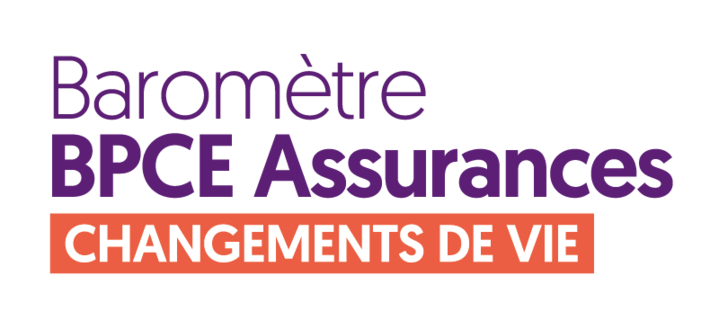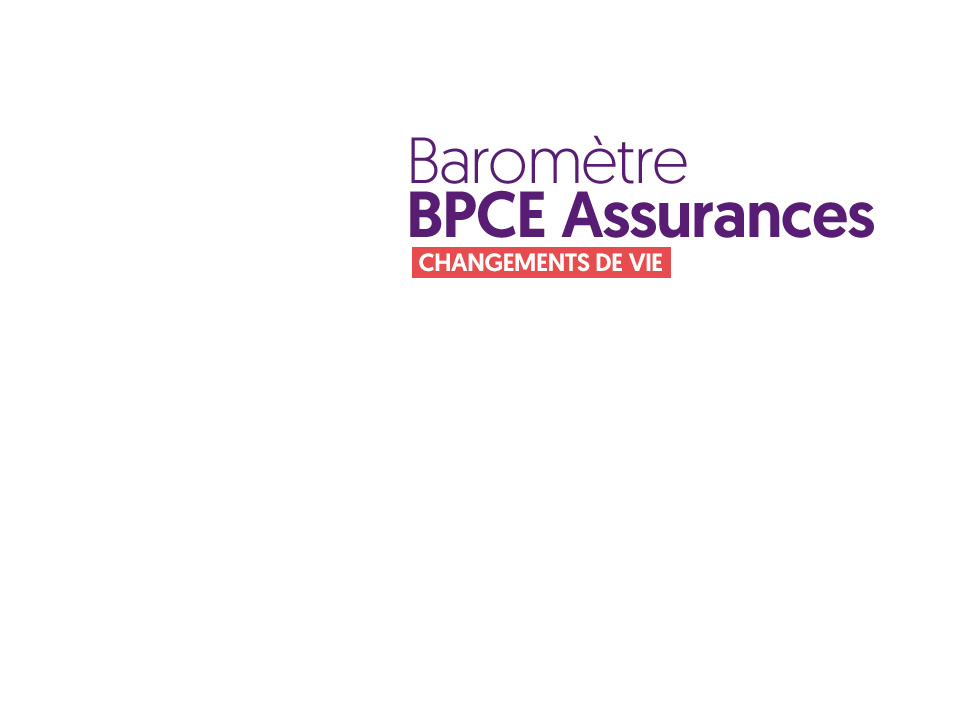

Nine French people out of ten want to change something in their lives
[June 2022] The first edition of the ‘BPCE Assurances Life Change Barometer Survey,’ prepared in association with Viavoice, provides an unprecedented and comprehensive overview of French society's attitude towards change.


The French express a strong desire for change in their everyday lives: their living environment, mobility, health, or consumption patterns. These life changes – or the desired ‘changes in their lives’ expressed by the French in this survey – point to a society wanting far-reaching transformations. The publication of this barometer survey comes at a key juncture for French society as a whole, subject recently to a series of crises of various kinds that have triggered, in their turn, a wide array of subsequent changes. The results of this first edition consequently paint a picture of France as a country suffering from a heightened sense of caution and anxiety..
Purchasing power, a major obstacle to life changes
86% of French people want to bring about changes in their lives even if 45% consider this to be an impossible dream chiefly for reasons of an economic and financial nature (60%) or owing to personal and family constraints (32%). The material dimension – notably the question of purchasing power – takes on a particular resonance in this respect with people finding it extremely difficult to project themselves into a positive future owing to uncertainties in the economic outlook.
Changes given priority status
When asked about the order of importance regarding the nature or type of changes they would like to see, 52% of French people who say they would like to “change things in their lives” would like to spend more time pursuing their leisure activities. The pace of life (37%) and their accommodation (36%) are the other two main things they would like to change.
1 French person out of 2 has changed their perception of their home or place of residence
The health crisis has had a clear impact on how the French view their living environment whether in terms of their home or their geographical area: 31% are happier with their accommodation vs. 19% who are less happy, 27% see their place of residence in a better light vs. 22% who have a less favorable impression. These new perceptions automatically encourage people’s desire to carry out home improvements (80% of those whose perceptions have changed want to make changes in their own homes) or to move elsewhere: 48% of French people plan to move in the next three years (25% wanting to change their home and 18% wanting to move to another geographical place).
Mobility: a number of obstacles remain
The first choice of 76% of the French is to use their own car to get around on a day-to-day basis, a percentage far higher than that of those who walk (47%) or use public transport (26%). But a quarter of the French population would like to change their daily mode of transportation: 14% of this 25% have identified how to do so (or have already taken the leap!) while 11% would like to change things but don’t know how. The main obstacle identified is the material dimension expressed, in practice, by the problem of purchasing power (43%).
Money, consumption, and savings: major fault lines in society
The French are divided by their attitudes towards money and consumption: 58% of them say they do not really want to change the way they consume. Only a quarter of the population would like to reduce their consumption, showing themselves receptive to the notion of sobriety. Executives (38% vs. 25%) are particularly sensitive to this idea while, on the contrary, employees and workers would like to consume more (18% vs. 12%).
Half of the population believes that they have already made efforts in favor of responsible consumption: 20% of the French could adopt these principles but have not yet taken the plunge for financial reasons (61%) or through lack of information (29%).
Finally, the French are cautious in the way they save money: 55% have no plans to change anything in the future, saying that they realize that more difficult times lie ahead (61%). Their principal concern is that their savings should be safe (41%) and should enjoy decent returns (30%), well before any considerations of being ‘responsible’ or ‘green’ (9%).
Health: rely more on yourself than on the State
88% of French people feel they are protected should they have problems with their health but only 30% feel they are completely protected. And they say that they place their trust primarily in the mutual insurance companies and supplementary health insurance companies (66%). French society also seems to be divided on the current capacity of the State to protect them: 47% of French people feel they can count on the State, while 45% say they must first rely on themselves. These findings emphasize the flaws in a social contract built upon a sense of national solidarity – a notion still struggling to maintain its foundational function today. Younger respondents aged between 18 and 24, however, are more likely to consider the State to be reliable (60% vs. 47%). Workers/employees, on the other hand, are more distrustful than the average, with half of them believing that they must rely upon themselves first of all.
A society that is all the more cautious because people don’t feel encouraged to take risks
64% of French people agree with the statement: “In life, it’s better to be cautious as you never know what might happen” vs. 30% are prepared to take risks (43% among 18-24 year olds and 39% among executives). The majority of respondents (58%) share the feeling that they live in a society that doesn’t encourage risk-taking and feel that they are not sufficiently supported to deal with possible threats or dangers.
“The results of the first ‘BPCE Assurances Life Change Barometer Survey’ confirm that the French are anxious and want to be able to count on a solid, accessible third party with a human face,” says François Codet, a member of Groupe BPCE’s Executive Management Committee and head of the Group’s Insurance division. “This expectation leaves us with an obligation and requires us to make a commitment. As a cooperative bancassurer present throughout France, we want to fulfill this major role in providing security for our customers and, beyond that, in supporting and facilitating the changes to which the French aspire.”
Methodology
Survey carried out by the Viavoice Institute for BPCE Assurances from May 2 to 6, 2022. Interviews administered online to a sample population of 2,000 French people aged 18 or more living in metropolitan France. The representativeness of the survey was ensured by the quota method applied to the following criteria: gender, age, profession, region, and type of urban area.